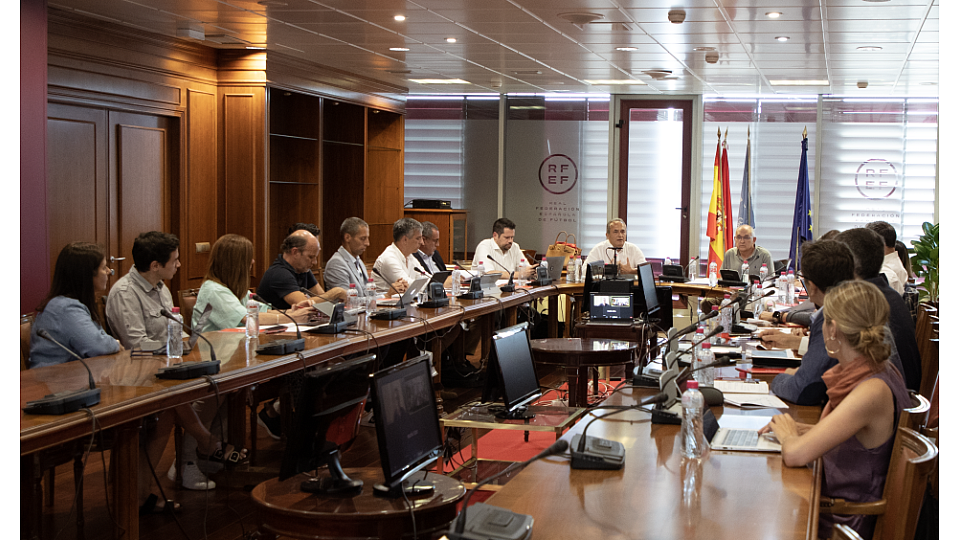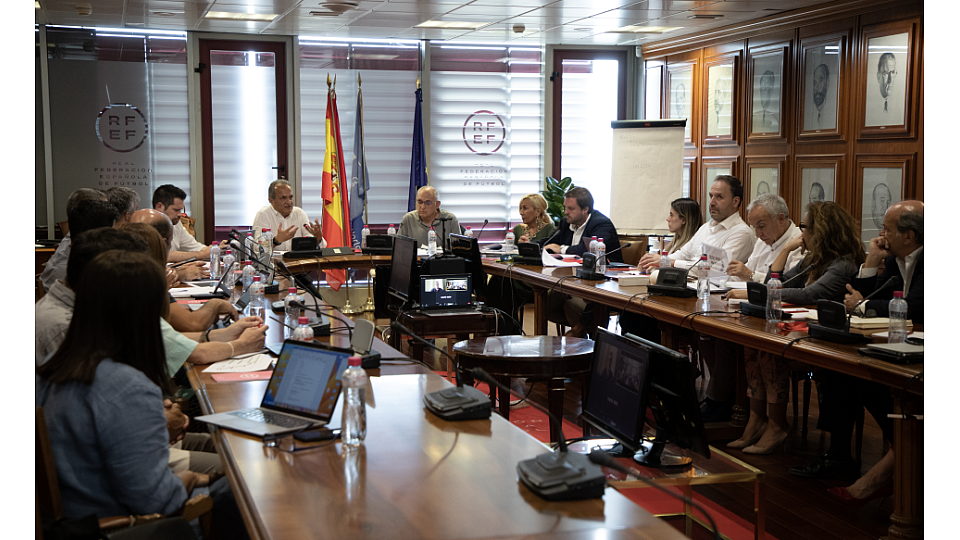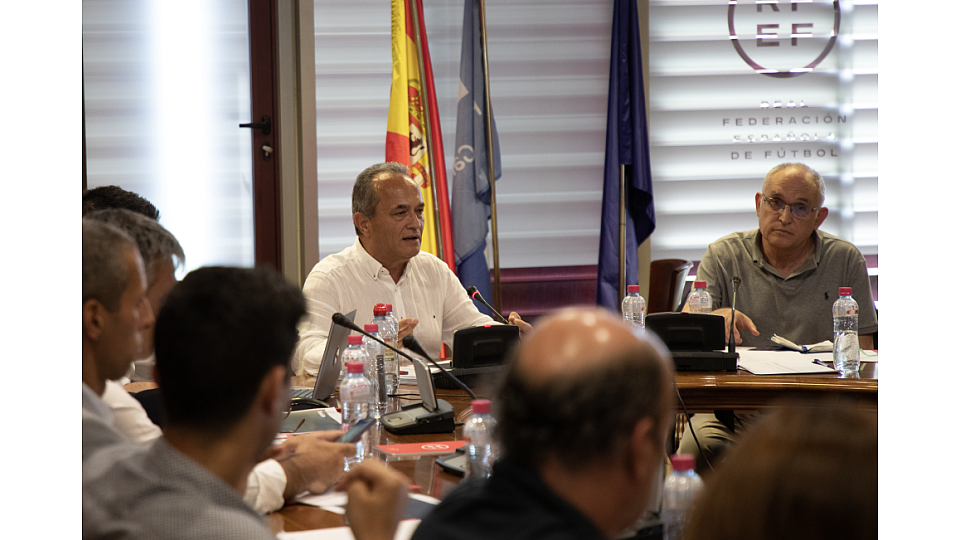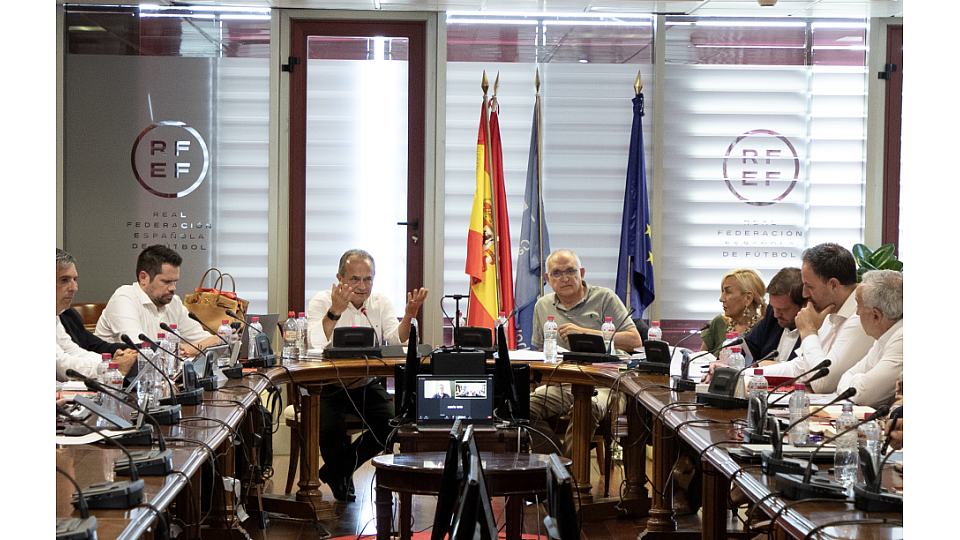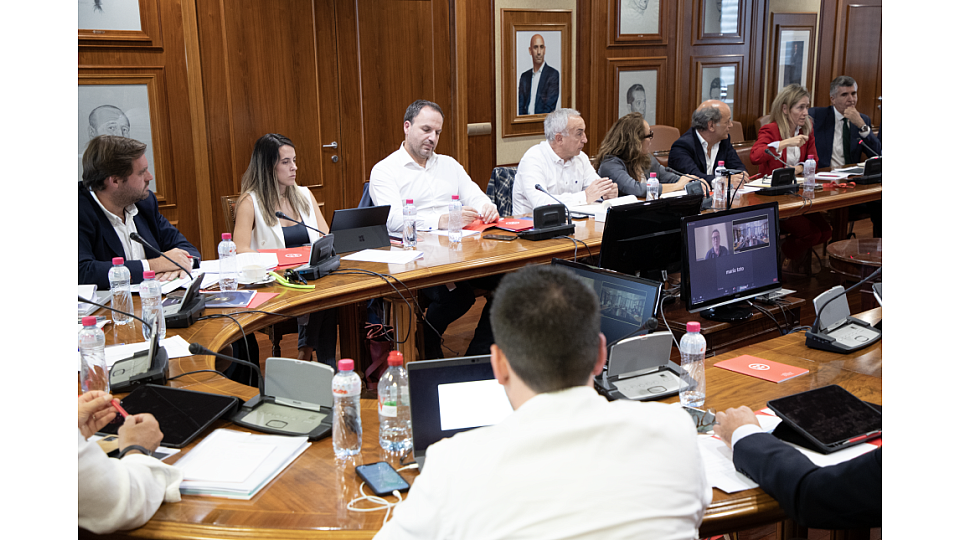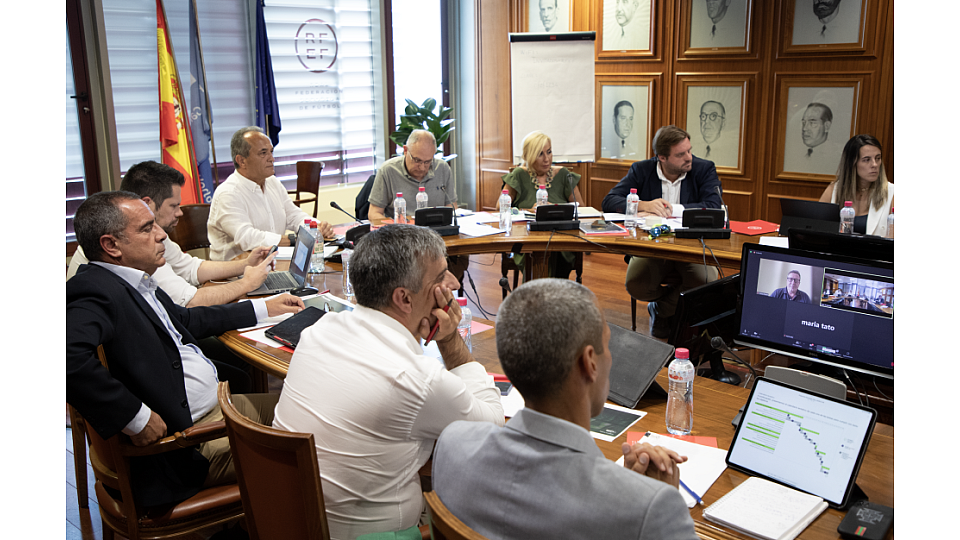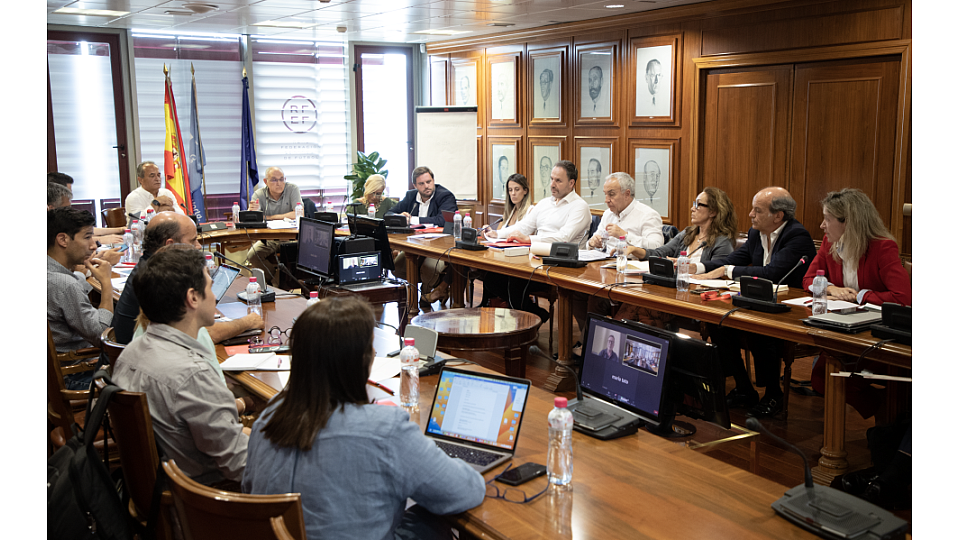Alejandro Blanco, President of the Spanish Olympic Committee (COE), at the follow-up meeting for the 2030 World Cup bid
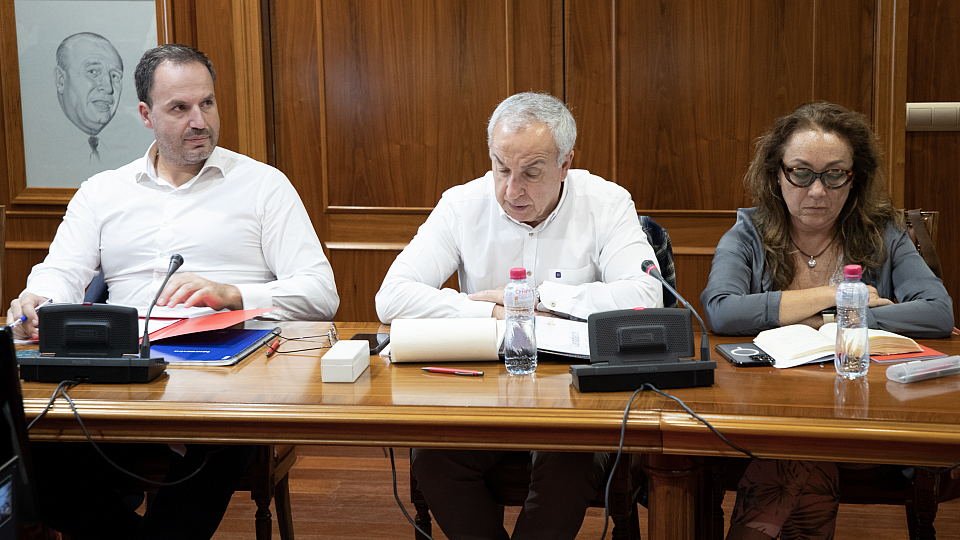
The session on Monday focused on sustainability, an aspect of the bid in which the COE will play a special collaborative role.
The meeting held on Monday at the Royal Spanish Football Federation (RFEF) to monitor the progress of the work on the 2030 World Cup bid was attended by representatives of the Spanish Olympic Committee (COE), led by their President, Mr. Alejandro Blanco. The Spanish Olympic governing body has thus formed a working group today, which also includes members of the Higher Sports Council (CSD) and the Sports Secretariat of Portugal, among other organizations and institutions.
Under the direction of Antonio Laranjo, the bid coordinator, and with the presence of representatives from the RFEF, the Portuguese Football Federation (FPF), and the governments of both countries, Monday's meeting specifically addressed the sustainability of the project. This topic is the main reason for the COE's presence at this week's session, as it will play a special collaborative role within the World Cup bid and provide technical support in sustainability aspects.
It is worth noting that in September of last year, the COE presented a Sustainability Manifesto, which was endorsed by the RFEF in an official act between its President, Luis Rubiales, and Alejandro Blanco himself, making it the first federation to join the document. This endorsement implied close collaboration between both institutions in the work towards environmental and human sustainability in sports. Undoubtedly, this joint effort must be present in the bid that Spain – along with Portugal, Morocco, and Ukraine – is preparing to host the 2030 World Cup. It should be noted that the COE is the most advanced national Olympic Committee in the world in terms of concern and development of sustainability issues.
Sustainability, a key pillar of the bid
One of the key pillars of this World Cup bid is sustainability; therefore, the RFEF, FPF, and COE are already working on the establishment of a Sustainability Strategy for the 2030 World Cup that takes into account all relevant aspects in this field. It is not just about meeting FIFA's requirements and criteria, as both Spanish organizations consider; the aim is to go beyond what is required to create a sustainable football model that sets a precedent in World Cup tournaments and other top-level international sporting events.
It is worth noting that the RFEF recently approved its Environmental and Social Sustainability Strategy at its most recent General Assembly. This document, aligned with the United Nations and its Sustainable Development Goals (SDGs) of the 2030 Agenda, already established some of the sustainability policies of the RFEF in relation to the World Cup bid.
